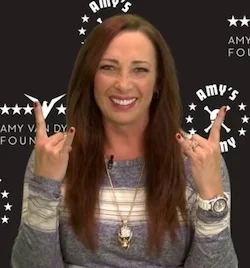Fast forward to June 2014 when Van Dyken-Rouen was thrown from the ATV she was riding near her vacation home in Show Low, Arizona. The crash dislocated her T11 vertebra in the middle of her back, paralyzing her from the waist down. But once again Van Dyken-Rouen would overcome the doubters in her life and mount an amazing recovery with the support of family, friends and fans who call themselves Amy’s Army. Just six months later, Van Dyken-Rouen launched the Amy Van Dyken Foundation and now uses her star power and Olympic determination to help raise money and awareness for people with spinal cord injuries who cannot afford badly needed medical equipment.
Researcher Uncovers Shocking Statistics on Medical Mistakes
Our next nominee quietly wielded the power of the pen to send shock waves rumbling through the medical establishment. The Institute of Medicine (IOM) published the report To Err is Human in 1999, estimating that up to 98,000 Americans die each year as a result of preventable harm in hospitals. As shocking as the IOM data were, Dr. John T. James, using recently published data and a more complete definition of preventable harm to include errors of omission and hospital-acquired infections, estimated in a recent study that 210,000 to 400,000 patients die from medical errors annually. That puts medical errors as the third leading cause of death in the United States after heart disease and cancer.
Sadly, the tragedy of medical mistakes would also visit Dr. James. In the late summer of 2002, James’ son John Alexander James, 19, “died as a result of uninformed, careless and unethical care by cardiologists at a hospital in central Texas,” according to his father. As the founder of Patient Safety America, James is dedicated to providing information to those who are concerned about the quality of health care in America.
Father Warns Others About Kids and Hot Cars
Reggie McKinnon always wondered how a “good parent” could forget their child in a hot car. But then the unthinkable happened. On the way to daycare, McKinnon’s 17-month-old daughter Payton Lynn slept so quietly that he forgot she was even in the back seat. There he found the lifeless body of his baby girl when he returned to his car after work, still in the car seat he strapped her into that morning.
Since that horrible day, McKinnon has dedicated himself to sharing his story with community groups, the news media or anyone else who will listen. He has also partnered with Safe Kids and several other organizations to promote a public service campaign called: Where’s Baby? Look Before You Lock. “My promise to Payton was to try and educate people,” McKinnon says. “I want people to understand that it can, does and continues to happen to good parents.”
Justice Served Awards Nominating Criteria
The Justice Served Awards celebrate the stories of injured people and their families who decide to make a difference in protecting the health, safety and legal rights of others. Once a year, we ask our readers to read these remarkable stories and tell us which one touches them most and why. Winners are chosen based on their efforts to:
- Uncover negligence or other irresponsible behavior by organizations that put their interests ahead of the public interest;
- Prompt government action by shedding new light on defective products, services or other practices;
- Trigger manufacturing and quality assurance practices that lead to safer products and services; and
- Increase public awareness that helps prevent additional injuries and protects an individual’s right to civil justice in a court of law.
This article appeared in our August 2015 "You Should Know" e-newsletter.







